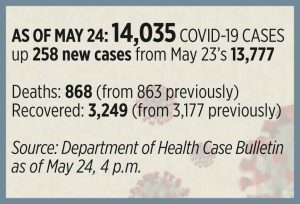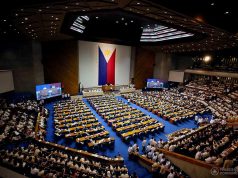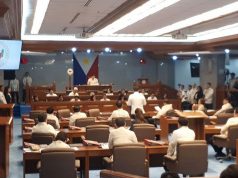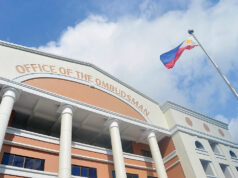Missing traditional family reunions as Muslims celebrate Eid’l Fitr at home
ASHREABAI Sinarimbo, a 26-year-old local government worker in Maguindanao, said the usual family reunion during the breaking of the Ramadan fast is one of the things he missed most as Muslims celebrated the Eid’l Fitr on Sunday with gatherings still banned due to the coronavirus disease 2019 (COVID-2019) threat. “It’s sad, because usually after the Eid prayer, we’d visit our relatives and even the graves of those who already departed. We would have kandulis (traditional food offering). Eid has somehow become an annual reunion for our family,” she said in a statement from the Bangsamoro information bureau. For Jamal M. Baulo, a teacher at the Mindanao State University–Malabang Community High School, spending the fasting month of Ramadan at home brought him closer to his immediate family, but still wishes they could have celebrated the Eid with their community. “I feel blessed for this year’s celebration, since I have become more closer to my family since the ECQ (enhanced community quarantine) began, especially most of our family stayed at home. We cannot deny the fact na mas masaya pa rin kapag ginagawa ang Salatul Eid sa ating mga Masjid (that it is still more joyous if we hold the Salatul Eid at our mosque),” Mr. Baulo said. Bangsamoro Chief Minister Ahod ‘Al-Haj Murad’ Ebrahim, in his video message for one of the most important celebrations in the Islamic faith, called on fellow muslims to keep the “patience” and “faith in Allah” as they continue to manage the COVID-19 crisis.
COOPERATION
The national police chief, Gen. Archie Francisco F. Gamboa, lauded Muslims in the country for following health and safety protocols in the observance of the Eid’l Fitr. “I regret that we cannot celebrate Eid’l Fitr this year like we traditionally do because of the ongoing health crisis but I am grateful for the understanding and cooperation of our Filipino Muslim communities,” he said in a statement. There are about 10 million Filipino Muslims living in the Philippines, with majority residing in Mindanao. — with a report from Emmanuel Tupas/PHILSTAR




